In a Commons exchange over the recent security breach at RAF Brize Norton, Shadow Defence Secretary James Cartlidge pressed Armed Forces Minister Luke Pollard on the financial and operational impact of the attack by members of Palestine Action, which resulted in damage to two RAF Voyager aircraft.
“Can the Minister confirm what will be the financial cost and impact of this attack on the RAF?†Cartlidge asked. “In particular, can he explain the immediate operational impact on the RAF? He says there has been no impact on planned operations from Brize Norton, but he will know that it could still mean that task lines are unintentionally reallocated to cover for the damaged aircraft. How long will the two aircraft in question be out of action for, if at all, and what has been the wider operational impact?â€
Responding from the government benches, Pollard thanked Cartlidge for “the tone in which he has asked his questions and for his support for armed forces personnel,†adding that “it is important at this time that this House sends a united message that we will protect our people wherever they are in the world, but especially those serving to keep us safe and to keep our allies safe in the Middle East.â€
On the substance of the questions, Pollard said: “I agree with him. I expect strong consequences for those responsible for the damage to our RAF Voyager aircraft at Brize Norton.†He added that “a number of investigations are under way, including the one commissioned by the Defence Secretary to look into what happened at Brize Norton and to learn the lessons.â€
He confirmed that improvements had already been made: “I can already report that improvements at the point of entry have been made at Brize Norton. There are also investigations to look at what lessons can be applied across UK military estates in the UK and overseas.â€
Pollard reassured MPs that the RAF’s operational output had not been affected. “I can confirm that in relation to the RAF Voyagers, the activities of the RAF were unaffected, because we were able to move assets to backfill those roles. One of the key things about having an agile air force is that we can do that.â€
As for the damage assessment, he said: “The investigation of the damage done to the aircraft by the people who penetrated the security is ongoing, and I will report when it has been firmed up more. It is right that we give Counter Terrorism Policing the space that will allow them to conduct their investigation of the incident at Brize Norton, and the hon. Gentleman will understand why I will not be able to provide a running commentary.â€
Pollard also updated the House on broader RAF deployments, noting that “we currently have about 14 [Typhoons] at RAF Akrotiri, and the Prime Minister has made it very clear that should further resources be required, we will not hesitate to roll them forward.â€


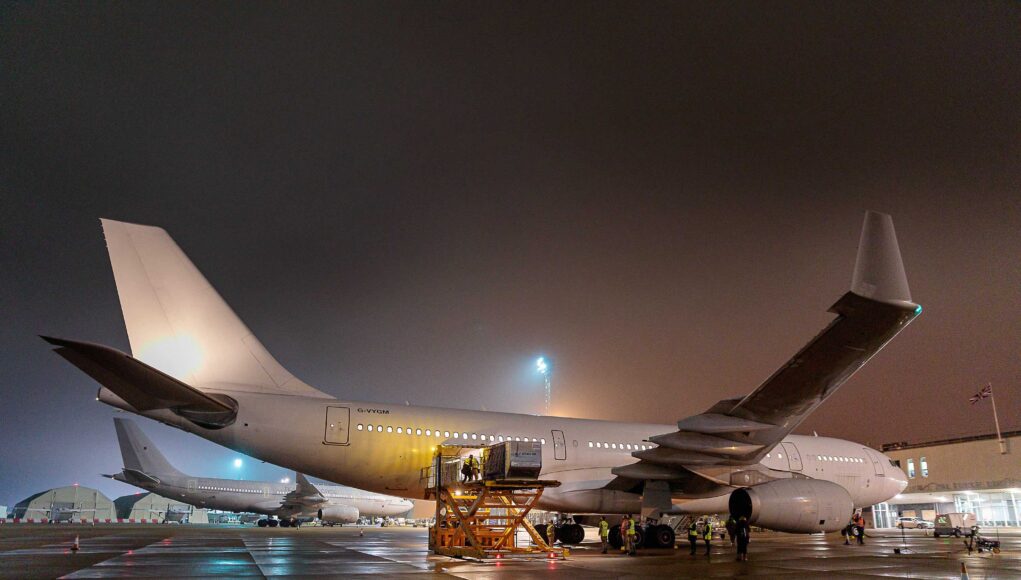
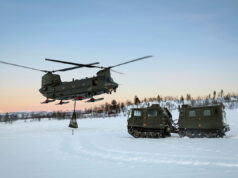


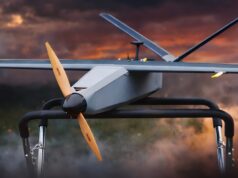
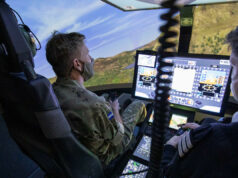
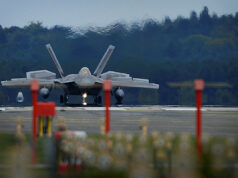
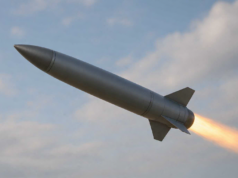




I imagine the career paths of some senior RAF Officers have been grossly affected. Well I would hope so anyway. Shall we try competence as the only requirement for post selection in future?
if you sacked everyone who has failed in some way – there would be no one left – failure can lead the learning and growth.
The buck has to stop somewhere and the abject failure to even remotely secure strategic aircraft is down the the base CO!
Wrong. If that is the case we sack all the base CO’s as all of the bases security is naff
I agree everyone organisation has to allow for some failure. The issue is the scale of the consequence of failure. A bigger question is whether there was a culture of shoulder shrugging and acceptance of failure allowed to develop within the organisation.
Base security at critical sites is the principle responsibility of the base commander. The Base Commander on taking over should be able to assess the existing security procedures and work out if they’re sufficient or not. They should also test it through some sort of penetration exercise. These exercises should also be conducted regularly and frequently to ensure security staff are always kept on their toes.
If resources are insufficient the base commander should raise a risk with higher authority and immediately ask for more resources to resolve it. Whilst additional resources are awaited they should redirect any resources they do have into mitigating the risk.
It will be interesting to see how much time the base commander at Brize Norton applied to base security in the months since their posting.
Unfortunately, whilst I agree the Base CO may have these responsibilities I doubt if they had much authority to change things too drastically because of financial constraints imposed from above.
All bases could be made more secure but in peacetime these things have been inevitably paired back as everything else in defence has been.
It has been a relatively cheap wake up call
Always follow the whys.. it’s easy to sack someone, but actually tracking why a failure occurs is the important bit.. because that actually tells you where the fuck up was.. who commissioned to perimeter fence and security infrastructure and why..who set the budget for the those projects..who set the resource levels for security and why, did they have the budget they needed.
Essentially it’s easy as f%ck to blame those in operational control, but actually you have to look to see if they were given the resources and support or if it was an impossible job..
I mostly agree but those in operational control have a duty not to be passive. They have to own their roles and if they find they can’t do it because of resources or because of bad process then they need to pass that risk on to other who can change that. That way you push ownership of the issue up the chain until it hits the blocker who is stopping you resolving it. Even if that responsibility goes all the way up to a Conservative Prime Minister who believed spending 2% on Defence was a sign of him doing a grand job.
Hiding true operational security costs by not paying for something which is essential only keeps accountants and saboteurs happy. My recent understanding of the MOD is that the core function of Defence lies somewhat behind financial control in order of precedence. If we were ever attacked it should be on a weekend. It would take a month and a weeks worth of paperwork jus to get the overtime approved.
Shrugging your shoulder and not wanting to rock the boat might be good for your career in the short term but it has terrible consequences for the country. I would hope that the Brize station commander can prove that she was on top of her game and it was the inaction of others which lies behind the recent incident.
However if this is not the case and there is evidence of an organisational culture within the RAF which is not taking security seriously I would quite happily burn the career of every station commander to rectify this.
Indeed and the “why†investigation naturally picks that up. Essentially if the operational staff have been doing their jobs properly and professionally and highlighting the risk and reporting the issue up, then a decent investigation and investigator will find that.
In my own investigation reports I’ve recommended actions against staff at all levels, depending on where the “whys†took me via the Audit trails.. you cannot blame senior leaders for lack of resources if no one has ever assessed the risk at operational level or reported on failure and risk..and conversely you cannot blame the operational leadership and staff if they have done the risk assessments highlighted the risk and reported the problems then been ignored and told to get on with it. Where staff where essentially set up to fail I have recommended supportive measures etc.. where the evidence takes you is where you need to go.
It’s 101 of risk management that I used to teach healthcare professionals and senior clinical leaders. it may seem a bind and counter productive when you are worked off you feet.. but do you risk assessments and fill in your incident forms.. because when the patients die because your overwork and overwhelmed it’s the only thing that will save your career and possibly keep you out of prison.. and just sometimes very senior leaders actually do something about the risks that are identified..
What tends to happen though is those that really highlight, especially if they are operational or junior level senior leaders ( the ones that really understand the risk) ..tend to get their cards marked and their careers cut short and those that don’t keep rising to the very top so we get senior structures full of people who are less willing to identify problems. As a classic example I had to self destruct my career when essentially I was “asked†to reduce a population level risk assessment from a 20 ( catastrophic risk on the corporate risk register) to a 12 ( a risk that is sub corporate risk register threshold) … when this risk had just been realised and occurred, which I of course refused to do as it was both unethical and against my professional code of conduct..so I had to move from that role in protest… .which was especially frustrating because I had literally 8 months before, written up exactly when the risk would be realised, what would happen and what the costs and harm would be and what needed to be done to prevent it happening.. the people who did nothing and let it happen still have their jobs, I got sidelined and finally offered redundancy… what is even more entertaining is the people who wrote the final investigation were the ones who did nothing and wanted me to reduce the risk score…so the report clearly said there was nothing to be done and it was all unavoidable….funny world…. I’ve seen more of that than you can imagine in my career sadly.
Sorry to hear of your rough experience. An organisation with a bad culture and a weak leadership tend to be dangerous places to work. A leadership team which is out of it’s depth will always behave irrationally and defensively. The problem is they fail to understand that reality biting is not a threat but an opportunity. Reality biting and the bleeding from the bite will always mold your organisation to the shape it should be. However its better for all if you can listen to the “squeaky wheels” in your organisation and oil or replace them before they fall off and you have to fix them anyway.
You may have a leader who would prefer to spend time on high status activities like support for Pride Month or promoting women in the workforce rather than the low status activities of competently assessing the vulnerabilities in your base security.
The first activity gets you praise the second activity just annoys your Top Level Budget Holder.
But activists breaking in, vandalising your planes and escaping scot free will certainly ruin your week and will certainly push your interest very much into reading the fine detail of the requirements of JSP440.
Isare you saying the commander is incompetent because it’s a woman? A well respected officer
No I’m more generally concerned with the general culture of the RAF where the role of Base Commander is given to an individual who has a limited set of experience and skills:
To quote the RAF website the current base commander “has completed command and staff appointments in personnel, media, recruitment, programmes and plans, and human resources. Promoted to Group Captain in Aug 22, she was recently responsible for delivery of the modernisation of career management practises and protocol.”
Based on the “trueism” that we tend to do what we know the inverse is also probably true. My fear is we have a base commander configured and confident in performing soft skills and not someone who would overly worry herself with things outside of her wheelhouse. Is base security something she would be confident in tackling or experience in provisioning? Does she have the temperament to kick off big time if she was unhappy with what she saw? I honestly don’t know but her bio would suggest not.
If the base commander was a man I would have had the same fear and made the same criticism. If she had come from a background in operations or Intelligence I would not have made any criticism at all.
Misogyny is not driving my criticism. What is driving my criticism is my experience of working within Defence over 30 years. My experience is telling me that there is something profoundly different with the culture today which wasn’t true earlier. We have an organisation cucked by financial control and influenced by bodies which are an anathema to an effective military. We have transformed from an organisation absolutely certain of its strength, history and capability to one which is diffident and more akin to being mere uniformed civil servants.
I have encountered numerous situations where problems are ignored and let to collect up because of lack of leadership or courage to push through stultifying bureaucracy. Meanwhile in the absence of achieving anything substantive more fluffy and distinctly un-military things are pushed as examples of people doing a good job. We should all definitely talk more about racism and the male menopause.
There is absolutely no point in buying expensive aircraft if you cant protect them on the ground. There is also no value in an air force that cant deploy its aircraft even if all it’s personnel are suitably trained to remember to put their appropriate personal pronouns in their email signatures.
I want angry red-shouty faced people as base commanders who butt heads with anyone and everyone in the organisation which stops them from doing their jobs. In the future security environment we do not have the luxury of finding jobs for compliant careerists.
Load of cobblers take 2 out of 9 that leaves a pretty big gap to fill!
Well no not really the contract covers 14 Aircraft not 9. There are 9 are permanently painted up and operated by the RAF, but 5 others equipped but used as charter Airliners. However they are surge capacity and can be repurposed as Tankers.
The other reason it may not be an issue is if they are easily fixable or were in maintenance, also RR Trent engines are in widespread use so swapping out by N3 or RR shouldn’t be an issue.
You’re correct on the numbers of course but are the contractors liable to give the 5 back at short notice?
If those damaged were not in maintenance then we have to assume others were, so that would cut the number available down even more!it increases flying hours on the remaining aircraft leading to more wear and tear and increased maintenance.
It’s been reported that the turbine blades were coated in paint,easy fix? Even if the RAF have a spare engine or two or even four they still have to be replaced. So your looking the damaged engines being repaired,any used from stock and the those from stock themselves replacedSo a very expensive episode indeed!
Interestingly one Labour MP ( who is ex RAF) was making it pretty clear that he though it would be really wrong to punish those who have had to live with and manage with the security resources they have been give.. as he pointed out.. they did not have control of what security infrastructure had been put in place over the years.
If you’re tasked with doing a critical job but cant do it because of resources you have to raise that issue until it is resolved or you find someone who is willing to bet his career on owning that risk.
Mmm the problem is that’s usually the Defence Secretary, and some have fallen on their swords over the years. The issue is and always has been the Treasury, it fundamentally hates spending money on defence and it sticks to that regardless of who the Chancellor is.
A recent incumbent (Baron MacPherson of Earls Court) was interviewed on R4 a couple of years ago and actually admitted they’d spend money on just about anything rather than actual Defence.
The fact is that other than the Red Arrows and the Guards I can’t of a single internal U.K. Defence related issue that has managed to get past that attitude this century.
MPA, Carriers, Amphibious Ships, AEW, Artillery all gapped for years, given the level of those capability Gaps do you seriously think guarding bases would be a priority ?
Half the battle in bureaucratic politics is getting the right people to have the right conversation. Senior people like to talk about their agendas or the agendas forced down upon them by higher ups. They tend to avoid and despise unexpected requests from resources from below. In business it is the role of audit and compliance to force resources into areas where they are needed. We need a similar approach for Defence. If Red risks are not addressed in an audit then the relevant person gets removed from role and that should include politicians. Jeopardy really helps focus the mind of the Decision Maker.
After all there is absolutely no point in buying shiny, shiny expensive bits of kit like F35A if you cant secure them because your too tight to erect a fence or employ sufficient security.
Unaffected? Humiliated would be a better term?
Hi M8 I’m a pragmatist and I actually look on this as a happy windfall opportunity and I really doubt they have actually done any serious physical damage. But those 2 prat’s may just have done more for base security in the UK with a bit of red paint than 20 years of belly aching about lack of home defence has managed. 🤔 Silver lining time.
FYI RR Trent’s are tested to withstand a damn site worse things than a bit of Red paint, try firing large frozen chickens at the front end to simulate a. Bird strike (nope I’m not kidding).
That must surely be true mate, as long as Healeys review isn’t a whitewash that ends up pulling funding for ships planes and people and spends it on fences cameras and other physical security measures.
I’d be amazed if they recruit more people, they cost too much.
On the RR engines, rest assured I read all your comments in this site, and noted your frozen chicken comment from last week.
Cheers mate.
Only a humiliation if you actually care about this country, its pride and its power. Politicians have been demonstrating for years the opposite!
Indeed, one MP is currently tweeting her support for PA.
Another of the enemy within.
“I can already report that improvements at the point of entry have been made at Brize Norton. There are also investigations to look at what lessons can be applied across UK military estates in the UK and overseas.â€
Lessons??? You have to be kidding me. The Lesson is: protect the air bases numbnuts.